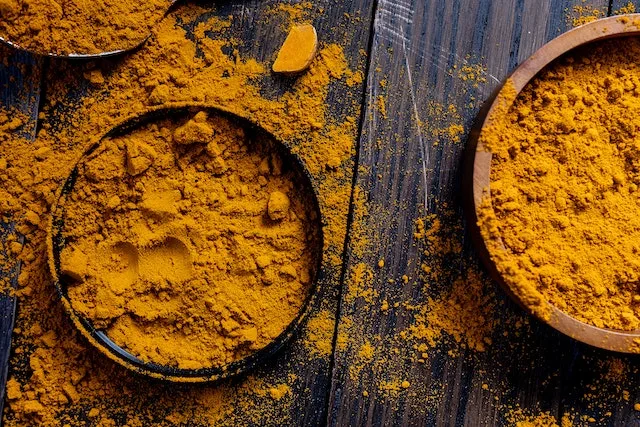Disclosure:
The Knowledge Guide may earn a commission when you purchase through links on our site. As an affiliate, we only promote products and services that we believe in and use ourselves.
Turmeric anti-inflammatory effects
also known as Curcuma longa, is a popular spice in many cultures that has been used for centuries for its medicinal properties. Turmeric is known for its bright yellow color and its potent anti-inflammatory effects. Inflammation is a natural process in the body that helps protect against infection and injury, but chronic inflammation can contribute to many chronic diseases such as cancer, heart disease, and arthritis. In this article, we will explore the anti-inflammatory effects of turmeric and who should and should not use it.
What is Turmeric?
Turmeric is a plant in the ginger family that is native to Southeast Asia. The rhizome, or underground stem, of the turmeric plant is dried and ground to make the spice that is commonly used in cooking. It` contains a compound called curcumin, which is responsible for its bright yellow color and its potent anti-inflammatory effects.
How Does Turmeric Work as an Anti-inflammatory?
Turmeric anti-inflammatory effects are due to its ability to inhibit a molecule called NF-kB, which is a key mediator of inflammation in the body. NF-kB is a transcription factor that regulates the expression of genes involved in the immune response and inflammation. Inhibition of NF-kB can lead to a reduction in inflammation and a decrease in the risk of chronic diseases.
Who Should Use Turmeric?
Turmeric can be beneficial for people who are at risk of chronic inflammation and chronic diseases such as cancer, heart disease, and arthritis. Some studies have shown that turmeric can help reduce inflammation and pain in people with osteoarthritis and rheumatoid arthritis. Turmeric may also be beneficial for people with inflammatory bowel disease, such as Crohn’s disease and ulcerative colitis.
Who Should Not Use Turmeric?
While turmeric is generally safe for most people, there are some individuals who should avoid it. People who are taking blood-thinning medications such as warfarin or aspirin should avoid turmeric as it can increase the risk of bleeding. Pregnant and breastfeeding women should also avoid turmeric as there is not enough research to determine its safety in these populations. Additionally, people with gallbladder disease or a history of kidney stones should consult their doctor before using turmeric as it may exacerbate these conditions.
How to Use Turmeric
Turmeric can be consumed in many forms, including as a spice in cooking, as a tea, or in supplement form. When using turmeric in cooking, it is best to add it to dishes that contain black pepper as this can increase the absorption of curcumin. Turmeric supplements are also available in capsule or liquid form and can be found at most health food stores.
Potential Side Effects of Turmeric
While turmeric is generally safe for most people, some individuals may experience side effects such as nausea, diarrhea, or dizziness. These side effects are usually mild and can be minimized by starting with a small dose and gradually increasing it over time.
Final Thoughts
Turmeric is a potent anti-inflammatory spice that can be beneficial for people at risk of chronic inflammation and chronic diseases such as cancer, heart disease, and arthritis. While turmeric is generally safe for most people, some individuals should avoid it, such as those taking blood-thinning medications or who have gallbladder disease or a history of kidney stones. Turmeric can be consumed in many forms and can be found at most health food stores. As with any supplement, it is important to consult with a healthcare provider before adding turmeric to your regimen.
FAQs
- What are the anti-inflammatory effects of turmeric?
- It has been shown to have powerful anti-inflammatory properties due to its active ingredient, curcumin. Curcumin can help reduce inflammation in the body by inhibiting certain enzymes and signaling molecules that play a role in inflammation. As a result, turmeric may be beneficial for conditions such as arthritis, heart disease, and inflammatory bowel disease. However, more research is needed to determine its effectiveness for these conditions.
- Can turmeric interact with medications?
- Yes, it can interact with blood-thinning medications such as warfarin and aspirin, and may also interact with medications for diabetes and high blood pressure. It is important to consult with a healthcare provider before adding turmeric to your regimen if you are taking any medications.
- Can turmeric help with weight loss?
- Some studies have shown that curcumin, the active ingredient in turmeric, may help with weight loss by reducing inflammation and oxidative stress in the body. However, more research is needed to determine its effectiveness for weight loss.
- Can turmeric cure cancer?
- While it may have anti-cancer properties, there is not enough research to support its use as a cure for cancer. Turmeric may be beneficial as part of a holistic approach to cancer treatment, but should not be used as a substitute for conventional cancer treatment.
- Can turmeric be used topically for skin conditions?
- Yes, it has been used topically for centuries for its anti-inflammatory and antioxidant properties. Turmeric paste can be applied to the skin to help reduce inflammation and redness associated with conditions such as acne, eczema, and psoriasis. However, it is important to do a patch test before applying turmeric paste to larger areas of the skin as some people may be allergic to it.
Rainier Guiang, MD is a board certified specialist in interventional pain management and practices in southern California at University Pain Consultants.
Related: epsom salts






